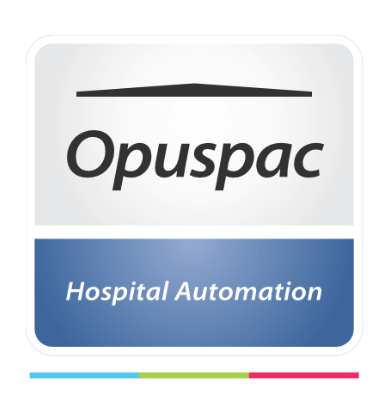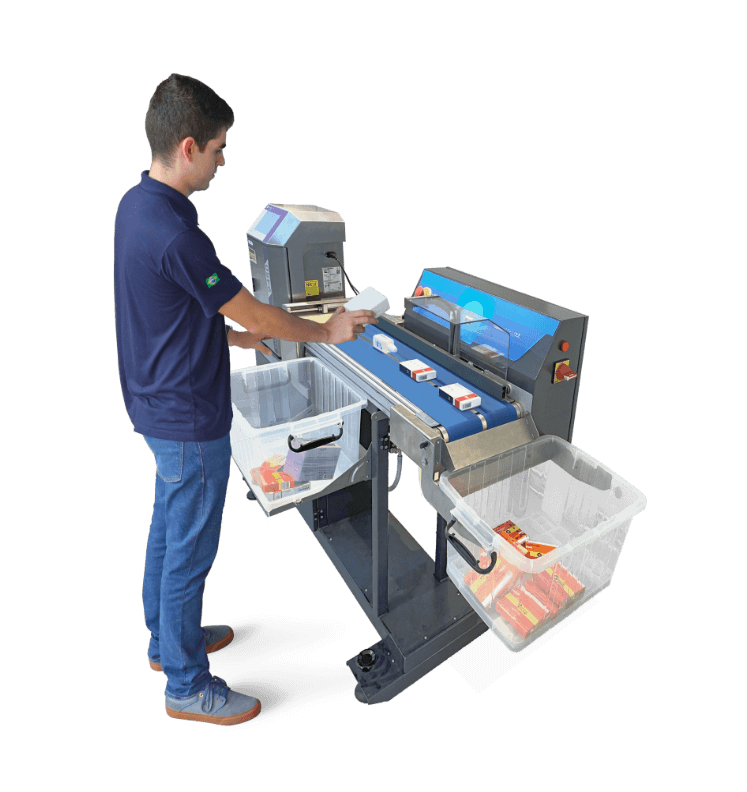

Inkjet Labeling for medical materials.
Prints texts and bar codes for identifying mats and meds
- Prints on a variety of materials, including porous plastics
- Quick setup. Does not require height adjustment
- Prints on curved surfaces
Safe Stock – Prevents waste in the Hospital Pharmacy
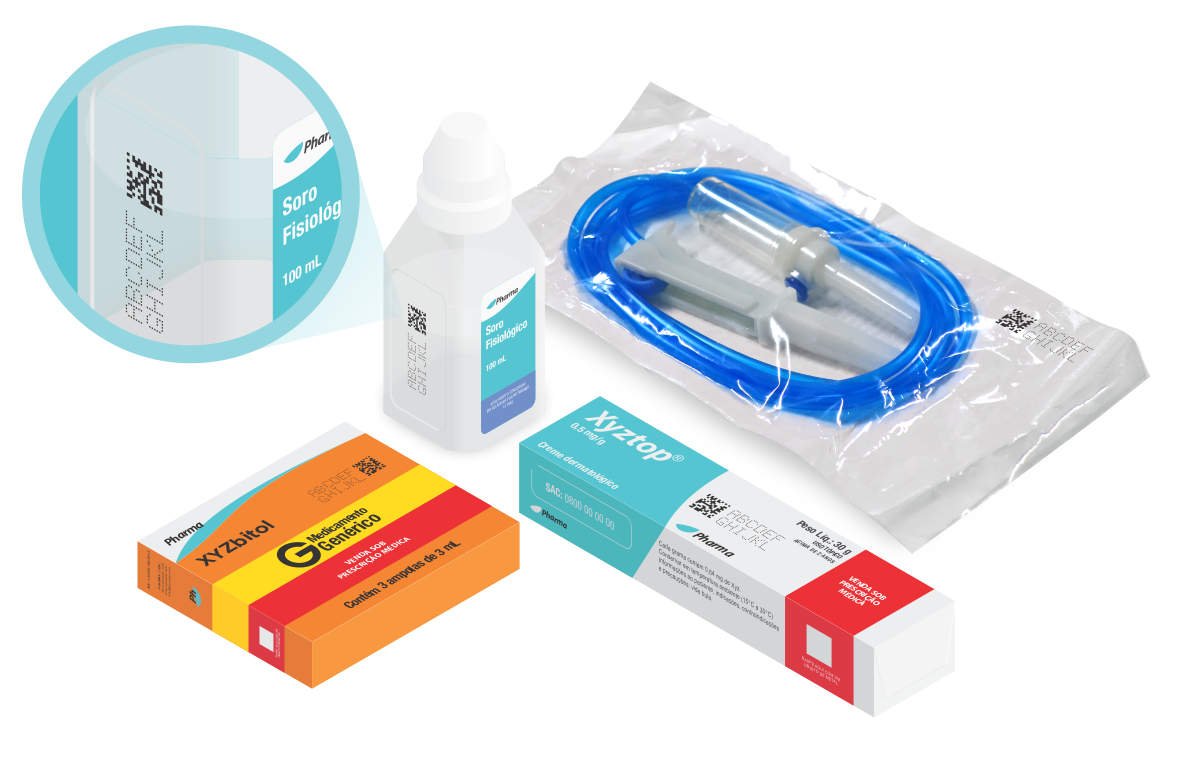
Include text and a barcode on hospital supplies and medications.
Vídeo
Features
· Does not require adjustment of the distance between the printer head and the product.
· Tilted position conveyor for operator convenience.
· Uses non-toxic alcohol based ink with instantaneous dry.
· Easy format change in 5 seconds.
· It has inlet and outlet reservoirs of 26 liters each.
· Labeling speed: up to 3,000 items per hour.
· Communicates with the hospital’s ERP (optional software).
· Stainless steel printer.
· Power required: 220 volts, 3,800 watts.
· Equipment weight: 150 Kg.
· Number of operators: One.
· Substrates: paper, cardboard, porous plastics, etc.
Know more
· 7″ color touch screen HCI
· Prints text, linear and 2D bar codes.
· Alert system.
· Reduced ink cost, with 800 ml cartridges that last for months.
· Access to maintenance and production history.
· Does not require compressed air.
· Operator access by password.
· Communication: Ethernet, USB or SD.
· 1 year warranty.
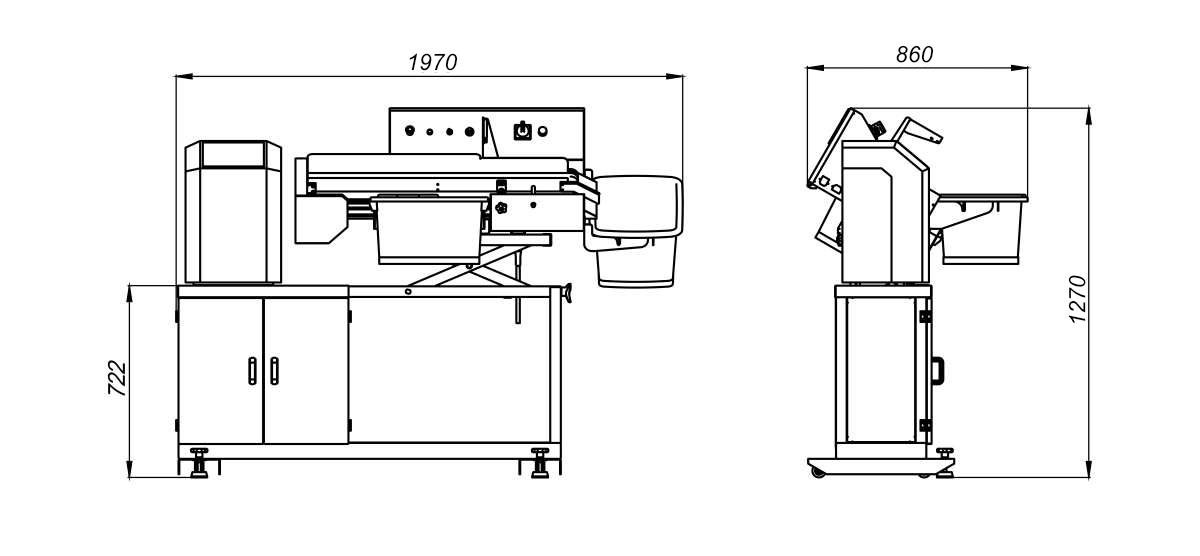
Know more
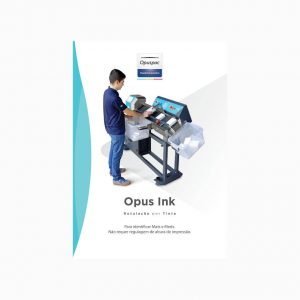
Opus Ink machine, for direct printing of characters and codes for identification of mats and meds (PDF brochure).
Size: 5.03 MB
Register to download
